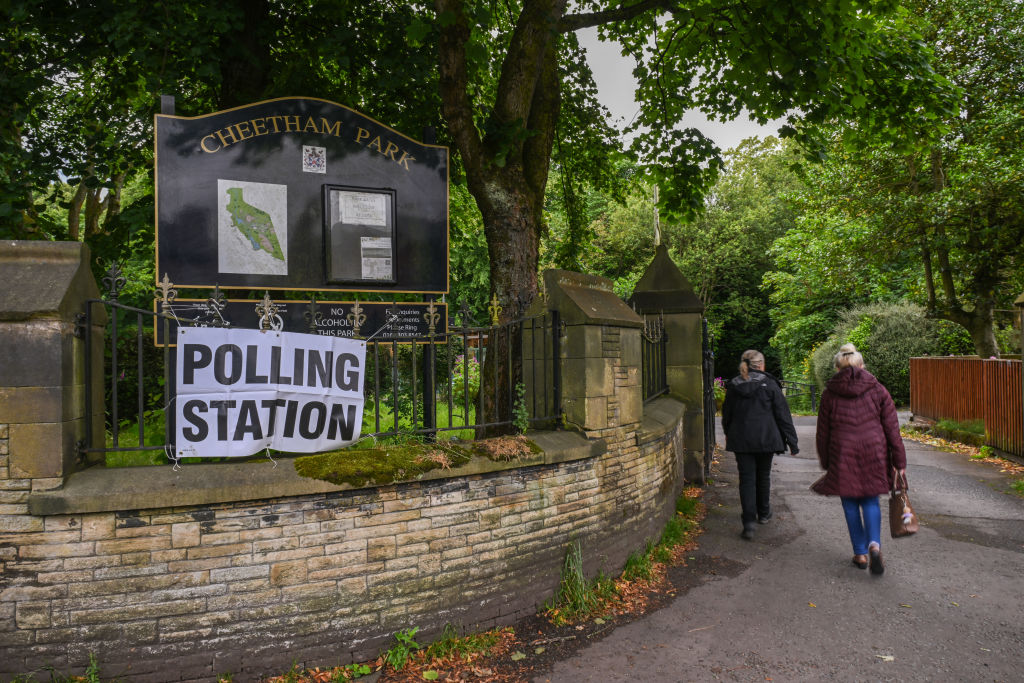
We've teamed up with The Week Junior to share their topical debates, so you can discuss the important issues of the day with your children. This week, it's all about the election.
In the UK, we live in a democracy. This means that citizens aged 18 and over have the right to vote in elections to choose which political party they want to lead the country. It hasn’t always been this way. For example, women were not allowed to vote until 1918 – and only then if they were over 30. Now, almost everyone who is old enough can vote in elections.
At the UK’s last general election, in 2019, 67.3% of people who could have voted actually did so (this number is known as the 'voter turnout'). Millions of people didn't. Turnouts for local council elections are usually much lower than general elections. In some countries, voting is considered so important, that people have to do it by law. What do you think? Should voting be made compulsory?
What you need to know
- Citizens of a country that is a democracy are allowed to vote to have a say in how their country is run.
- Today, most people across the UK aged 18 or over will vote in the election, but they don't have to take part.
- In some countries voting is compulsory. This means that people have to vote. The law in Australia says that everyone aged 18 and over must vote or face a fine (money paid as punishment). In the UK, it isn’t compulsory to vote.
Yes – voting isn’t just a right. It’s a duty
Voting is an essential part of living in a democracy, where everyone is responsible for helping to choose who runs the country. Yet, lots of people don’t make use of their right to vote. In the past, many fought hard for our right to vote, so we owe it to them not to take our rights for granted. Compulsory voting would also give everyone more of a reason to learn about political issues and form their own opinions.
Also, politicians might ignore people who don't vote. Data from the 2023 local elections in England showed the voter turnout was the lowest in poorer areas. These areas could benefit from politicians' help with issues like making sure housing is good quality. If everybody voted, politicians would have to listen to everyone.
Three reasons why it should be compulsory to vote
- There are people around the world who are still fighting to have the right to vote, so people who are lucky enough to live in a democracy should vote.
- Compulsory voting would encourage people to get involved in politics and keep up-to-date on important issues.
- If everyone votes, it means politicians have to listen to everyone. Without that, politicians might ignore people who don’t vote.

No – voting should be a free choice
A democracy is about freedom of choice, so people should be allowed to choose not to vote - which can be in itself a form of protest. Why should someone cast a vote if they don’t think there’s a candidate who represents their interests? Also, people may not feel they know enough about current affairs to vote. If they don't have the time to get informed, is it better not to vote at all?
Besides, compulsory voting can lead to a lot of spoiled ballots. This is when someone doesn’t fill in their voting paper correctly, so it can't be counted. In Australia - where people have to vote - at the last national election in 2022, there was a much higher percentage of spoiled ballots than at the UK’s general election in 2019.
Three reasons why you shouldn’t have to vote:
- Forcing people to vote goes against the whole point of democracy. Voting is a choice. Voting should be a choice, and not voting can be a important form of protest
- Not everyone has the time to be studying political ideas or important issues, and if people aren't informed then it's better that they don't vote.
- Compulsory voting doesn’t work because people could still turn up to vote but simply spoil their ballot.
Subscribe to The Week Junior
Get your first 6 issues free - saving £21 - when you subscribe to The Week Junior magazine. Continue on subscription and pay just £33.99 every 3 months, saving 25% off the cover price, unless cancelled in the trial period.







